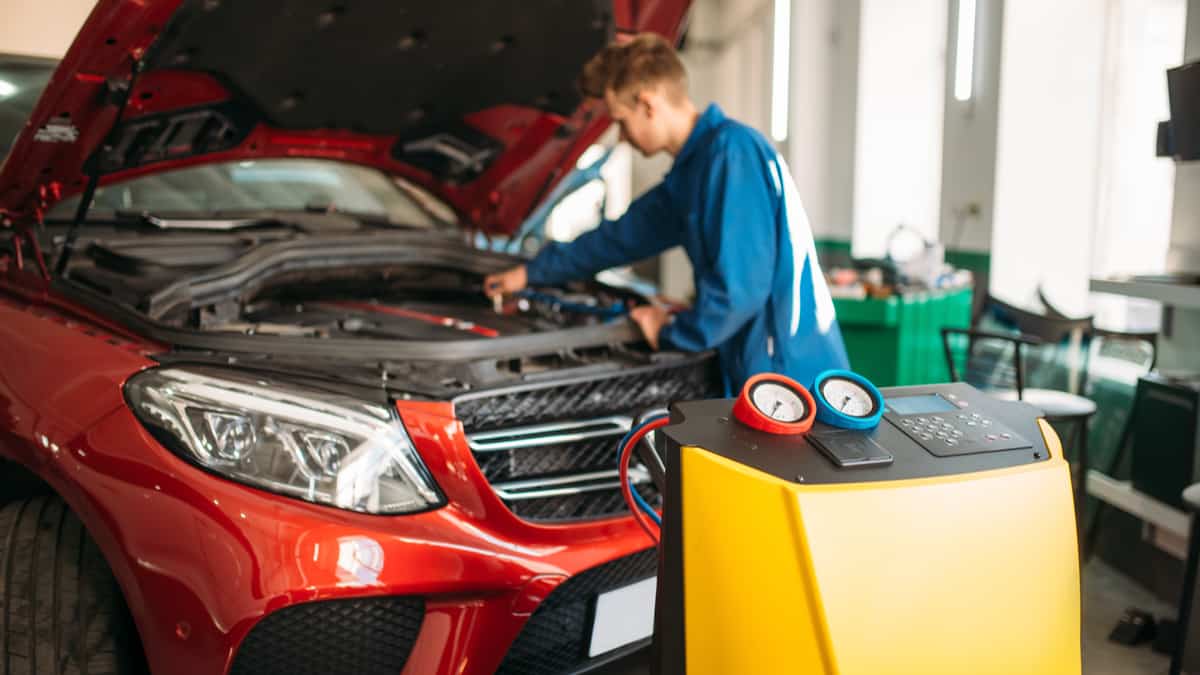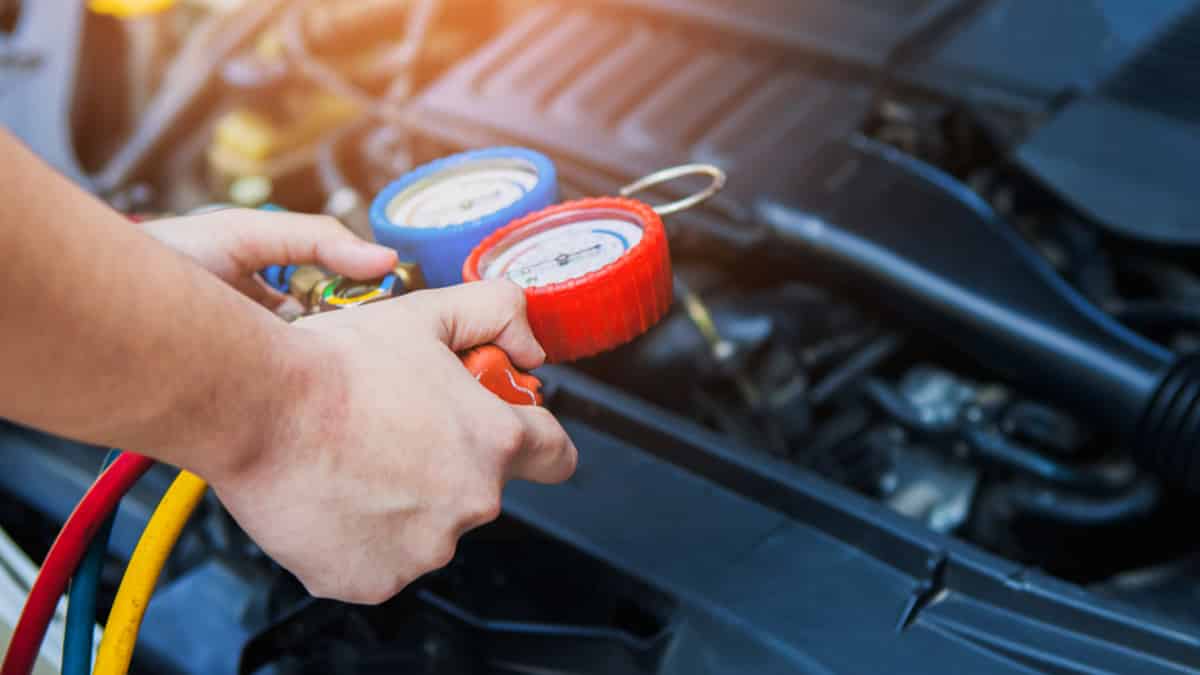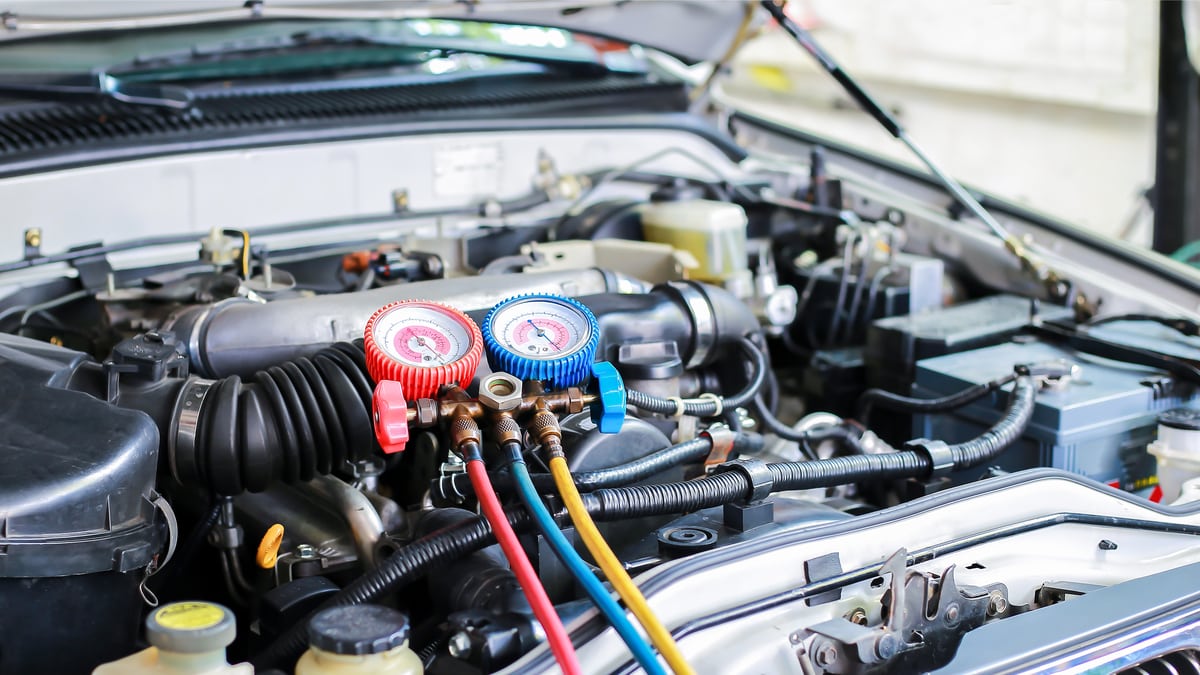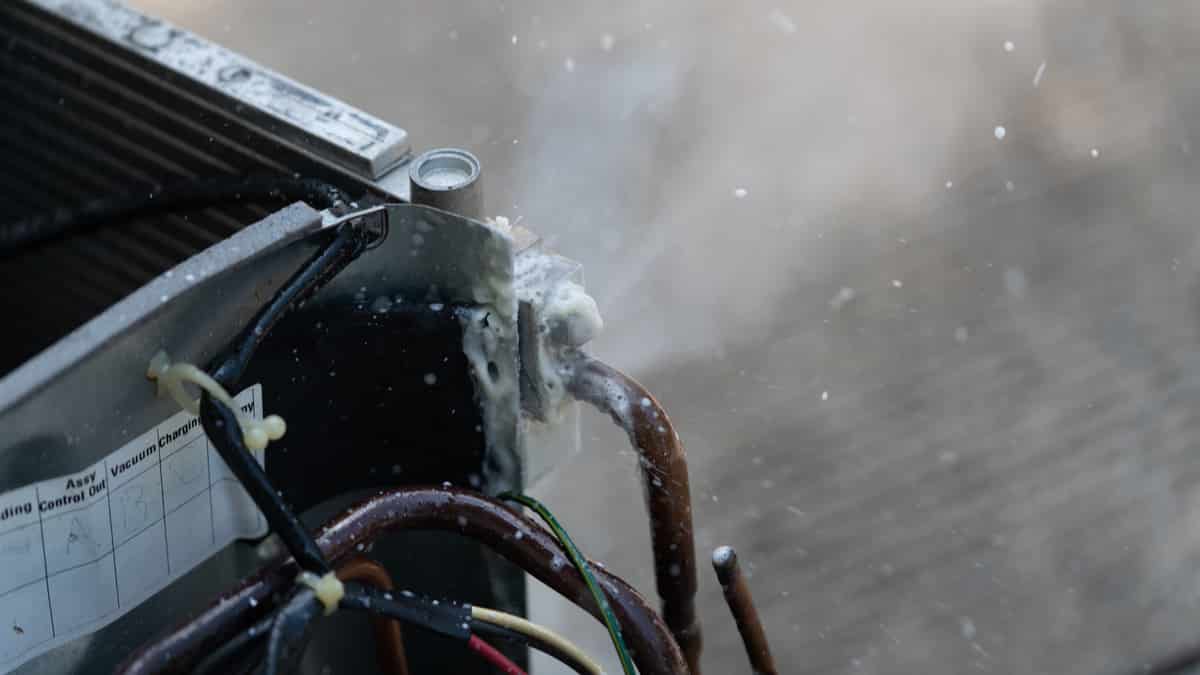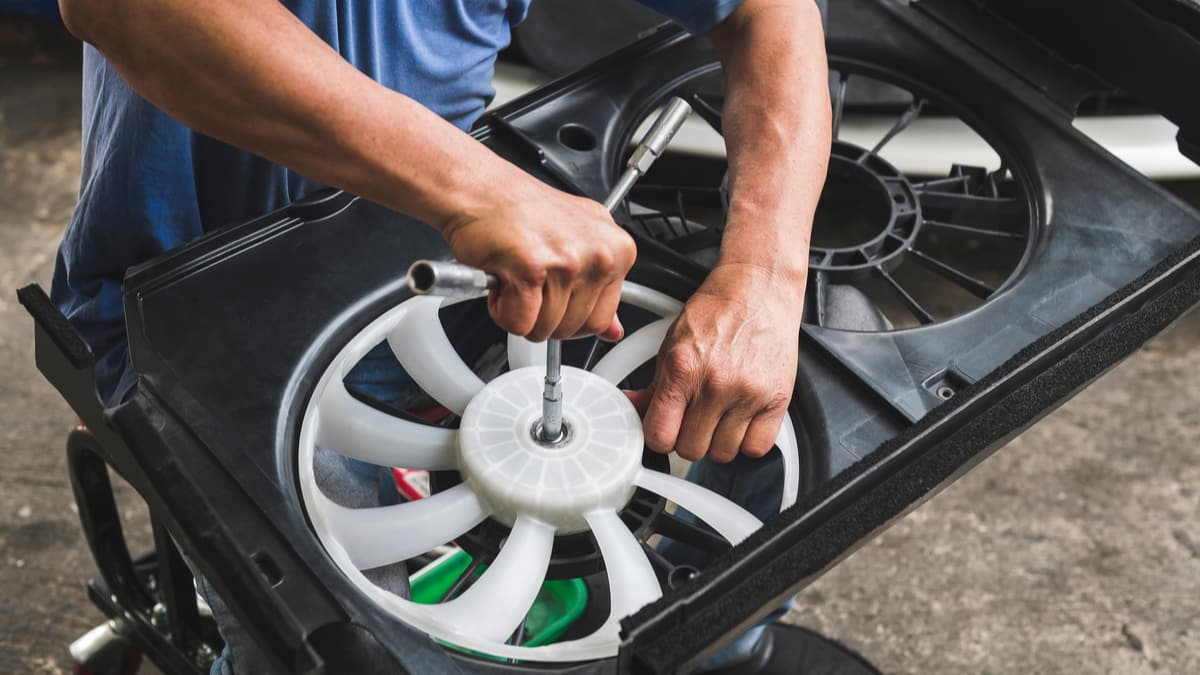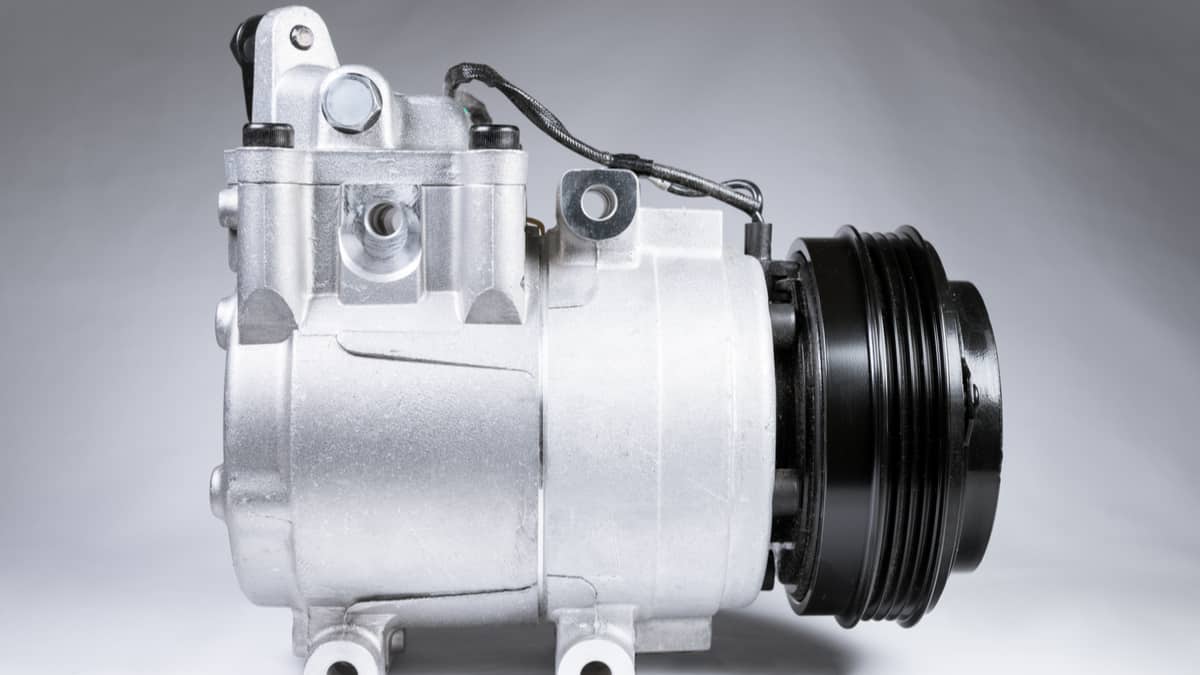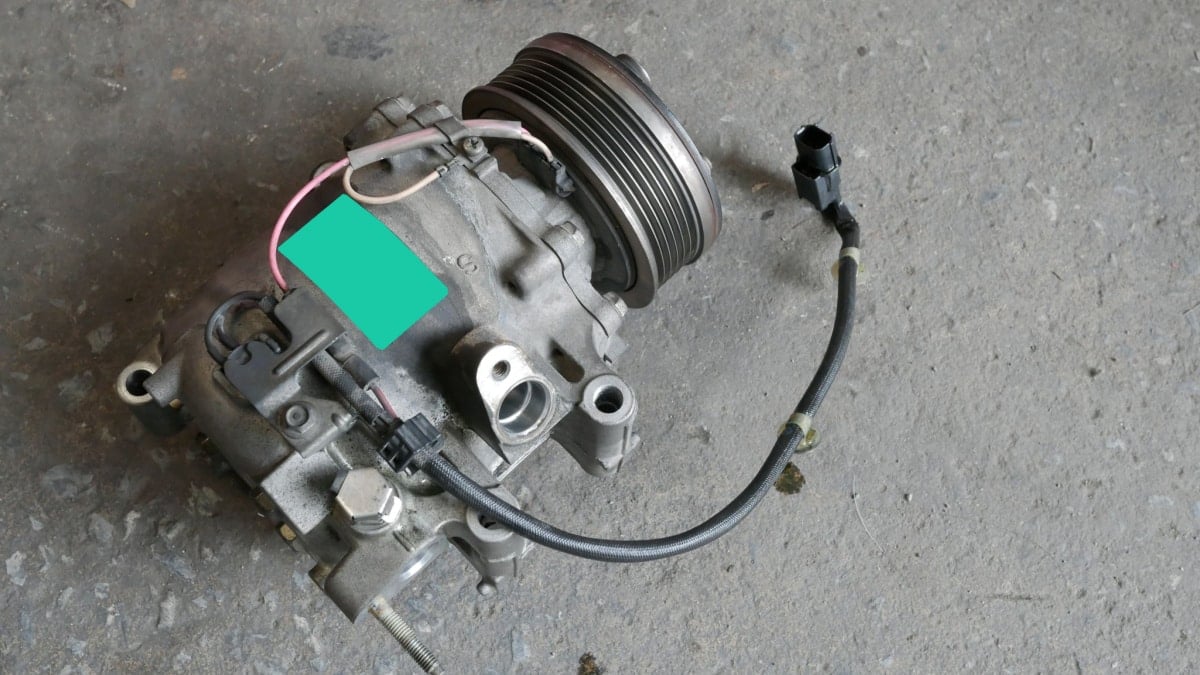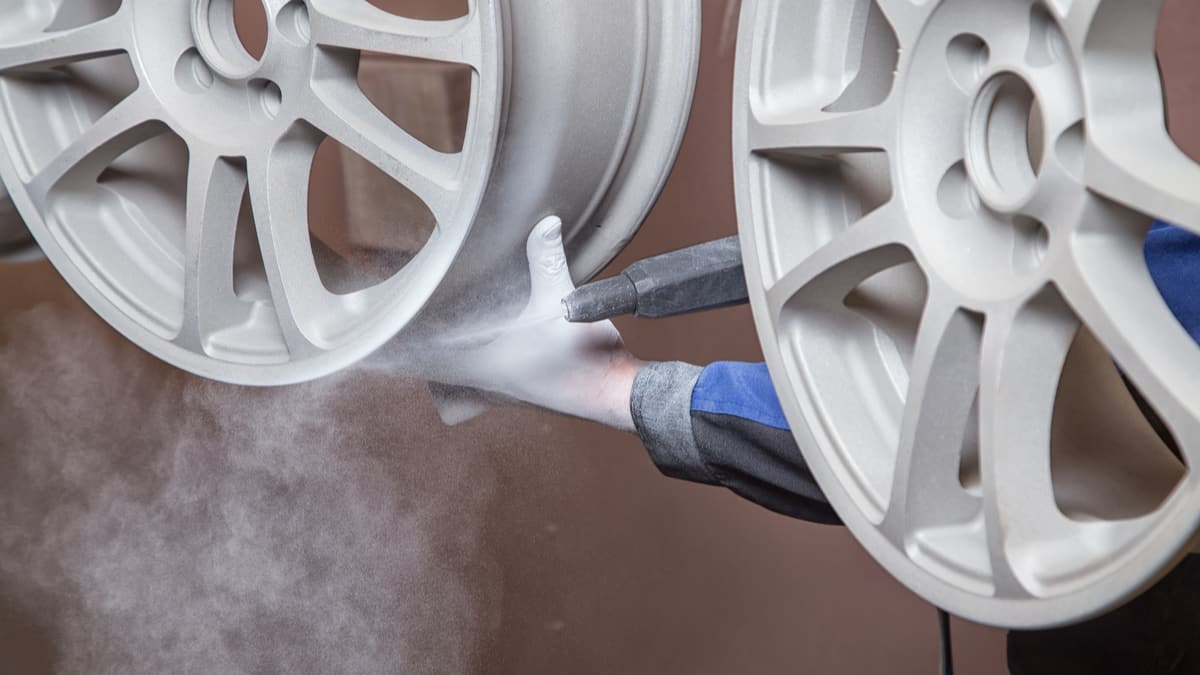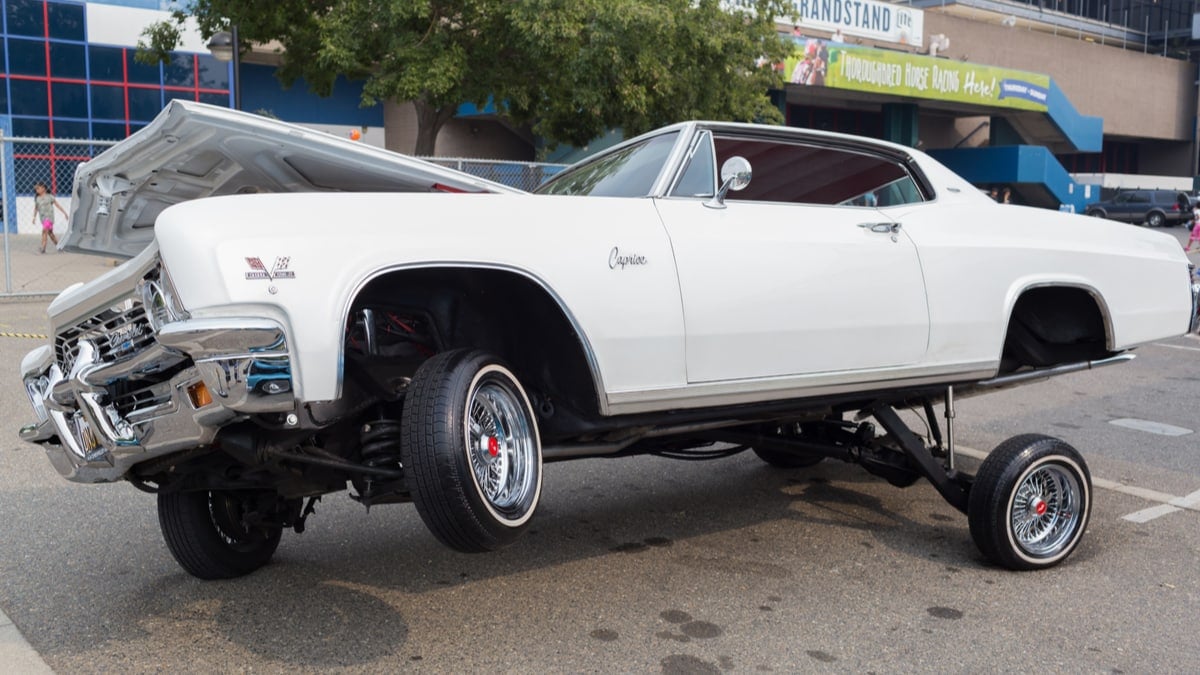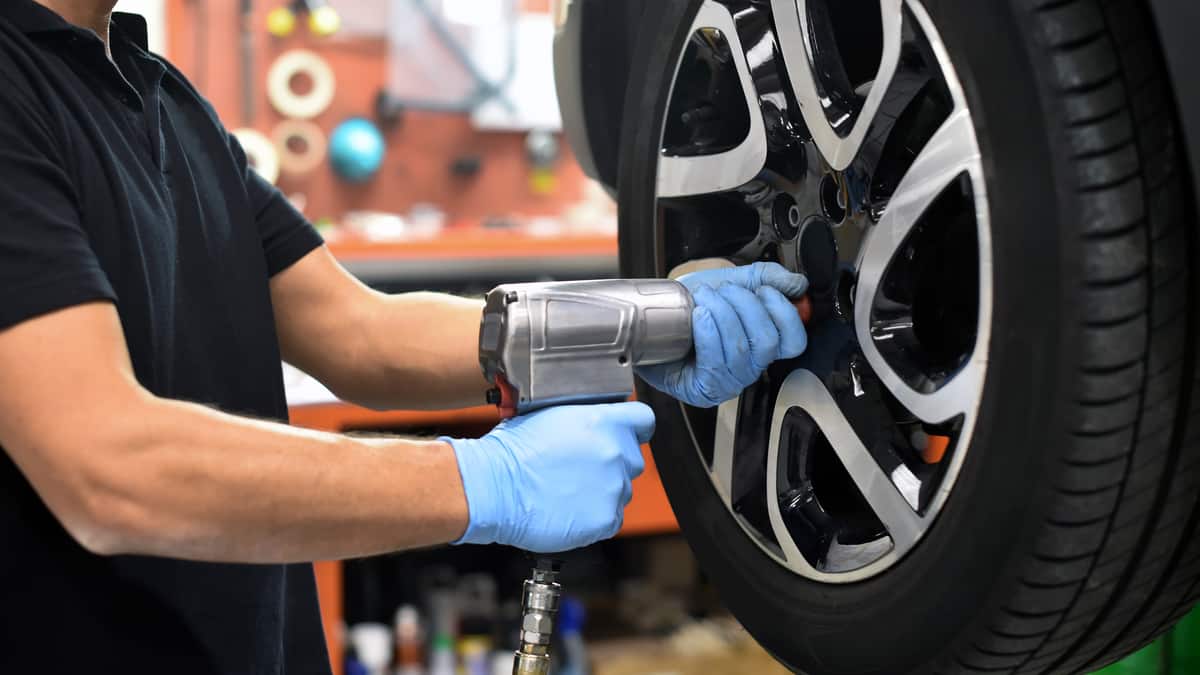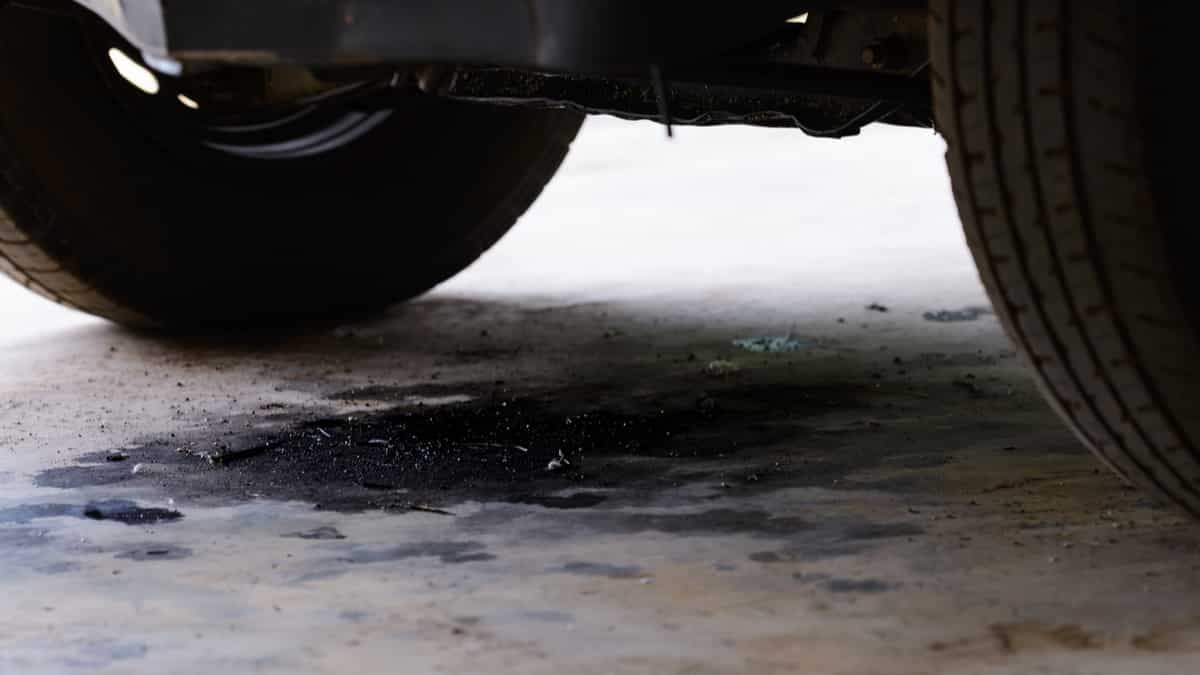When the temperatures rise outside, you want to know that you have a car cabin ready to provide relief. So, what do you do when the cabin isn’t cooling off, and you are left in the sweltering heat?
You may need to consider having the air conditioning recharged. But how much does an AC recharge cost, and how often should this service be performed?
In this guide, I cover all of the factors that affect this cost. I also cover how often the AC should be recharged and show you some signs that might be noticed. There’s even a small section discussing how long a recharge can take, just so you are prepared. At the end of the article, I talk about whether you should drive the vehicle when the AC needs a recharge.
How Much Does an AC Recharge Cost?
On average, it may only cost between $25 and $100 to recharge the car AC yourself if you have experience and expertise. Otherwise, you could spend $100 to $350 to have a professional handle the whole recharge and leak test process for you.
The cost depends on the type of car you drive and if there are any other repairs needed. You also have to remember that you should not only charge the AC with more refrigerant, but the whole leak test process is also needed, and it can cost some money.
In some countries, it is illegal to work on a car’s air conditioning system without special certifications and the right tools. Doing something wrong when topping up the AC system is not only bad for the environment, but can also cause personal injuries or serious damage to your AC system, which is why you should consider having a professional do the job.
Estimated AC Recharge Cost by Car Model
These are the average estimated recharge cost by car model. The AC Recharge Cost can also differ depending on your engine type and year model.
| Car Model | AC Recharge Cost |
|---|---|
| Ford F-150 | $250 |
| Honda CR-V | $150 |
| Chevrolet Silverado | $250 |
| Ram 1500/2500/3500 | $210 |
| Toyota RAV4 | $200 |
| Toyota Camry | $190 |
Factors Affecting AC Recharge Cost
1. Make/Model of Vehicle
As with any type of fluid used in your vehicle, the cost is going to significantly depend on the type of car or truck you are driving. You won’t need as much refrigerant with a compact car as you would with a heavy-duty truck or van.
Additionally, if you are having someone else work on the vehicle, the labor rate will be different if it’s hard to recharge. Not every vehicle is simple to pump back up.
To give you a better example, we can look at some approximate costs based on various popular models. Professionally, you might spend $200 to $275 for your F-Series recharge, which will be similar to a Chevy Silverado recharge. On the other hand, recharging the AC in a Toyota Corolla may only cost you $175 to $250. Because of the size of the car, the price will also be similar to the Nissan Altima. You can gauge a lot of the prices by the size of the vehicle.
There’s one major exception to this rule. If you drive a luxury vehicle, the cost to work on it can be much higher, especially if you have to visit a specialized shop to get the work done.
2. DIY vs. Professional
If you can recharge the system yourself, you only need to purchase the refrigerant. As long as you have all of the gauges, tools, and certifications needed in your location, you won’t have to spend money on anything else.
On the other hand, having a professional recharge will cost far more. If you can visit a local lube station or neighborhood repair shop, you will likely still be able to spend less than if you take your vehicle to the dealership.
3. Other Repairs Required
Because the air conditioning system is closed, the refrigerant shouldn’t need to be recharged unless a problem has occurred. Of course, it can leak down a small amount over time, but if you notice that the recharges are frequently happening, there’s something else going on.
For this reason, you must factor in the cost of other repairs that might be necessary. Rubber seals might have dried up, allowing the refrigerant to leak out. There could also be failing hoses, lines or components that are allowing leaks.
A leaking or bad AC condenser is also a common issue, and it does no good to recharge the system and have the new refrigerant leak out again, which is why you want to make the repairs now.
How Often Should Car AC be Recharged?
There’s no set requirement on when to recharge the car AC. It’s not part of the recommended maintenance, because the goal is that you shouldn’t need to recharge it since the system is closed. However, that’s just a dream, because any minor defect can lead to a refrigerant leak, causing you to need a recharge.
Ideally, you won’t need to have the recharge more than every few years. If you are having the air conditioning recharged more often, there’s probably something wrong that should be looked at by a professional.
How Long Does it Take to Recharge an AC System?
If you have the skills to do it yourself, it shouldn’t take you longer than 30 to 60 minutes to complete the job. Recharging an air conditioning system doesn’t take long, but the leak test is what takes most of the time. You usually want to pressure or vacuum test the AC system for at least 30 minutes.
On the other hand, it’s naturally going to take longer at a shop. While the service itself doesn’t take more time, there are other factors adding to the time. For example, you first have to wait for your car to be taken into the bay. If there are other vehicles before yours, that wait time could be extensive.
Additionally, most service stations do more than simply recharge the system. The technician should provide a quick inspection of the air conditioning system to see what’s causing it to need a recharge. If there are any other problems that must be addressed, you will get a quote from the repair shop for these fixes. If you aren’t sure that these problems are real, you may want to take the vehicle to another shop for a second opinion, which further adds to the time.
How To Tell The Car AC Needs to be Recharged
1. AC Blows Warm
The most obvious sign that your system needs to be recharged is that there’s no cold air coming out of the vents. If you are only feeling warm air, a simple recharge might be all that’s required.
Low refrigerant keeps the system from pressurizing fully, so it can’t get cold. However, there are many other problems that can cause the same issue, so you might want to have the system checked.
In comparison, if the air coming from the vents fluctuates between warm and cold, the problem is not the refrigerant. You have something larger going on.
2. AC Clutch Doesn’t Engage
If the car air conditioning isn’t working, the clutch might stop engaging. This can happen when the refrigerant gets low to protect the system from further damage.
When the clutch engages, you will hear a prominent click sound. It’s easier to hear if you are standing outside the vehicle. When you don’t hear the click, the clutch isn’t engaging, and you aren’t going to get cold air from the vents. Again, this could be more than a low refrigerant problem, so have it checked out if you aren’t sure.
3. Leaking System
One of the main reasons that a car would need to be recharged is because there’s a leak. How do you look for a leak? You can get a special UV dye kit that shows what’s going on. These products are great for hunting down where the leak is coming from, so you can resolve the problem once and for all.
You may also notice that there are some grease-like puddles occurring under the engine bay. This leakage could be from the refrigerant.
LEARN MORE: 5 Signs Your Car’s AC is Low on Freon
Is It Safe to Drive Without an AC Recharge?
Whether it’s safe to drive with an empty AC system depends on what type of AC compressor your car has. If it is the old style with a clutch, it will not activate when the AC system is low, and you can drive without issues. However, if it is a modern variable AC compressor, it can seize if the refrigerant is low, which can be costly to repair in the future.
The coolness of your car’s air conditioning doesn’t affect how the vehicle drives. With that said, it can make the ride uncomfortable, especially if it’s hot outside. If you want to keep people happy, it’s best to keep the air conditioning running as intended. Even if it isn’t warm outside, the air conditioning can still be important. The system is used to defrost your windows, so you may want to consider getting the system checked, even in the middle of winter.
For the cost of a recharge, it often doesn’t make sense to procrastinate, especially if you can do it yourself. However, you may need to budget accordingly if some parts need to be fixed prior to the recharge.
A Mechanic’s Tips about an AC recharge
- Always leak-test the AC system with vacuum or pressure before you refill the system to save yourself some money and the environment. Releasing AC refrigerant into the air is very bad for the ozone layer.
- It’s recommended to put the AC system to vacuum with an AC service machine to remove all moisture and water from the AC system before filling it.
- Check the AC compressor clutch and AC pressure switches before doing any advanced work on your AC system. If the AC compressor clutch does not engage, you may be able to remove some shims inside it to make it last longer.
- The best way to find AC problems is to connect the AC service machine – Drain the system and set the vacuum for 30 minutes. Check for leaks, and then fill the system with leak detection fluid, oil and coolant. Let it run for 20 minutes and check the operation and watch for any leaks. If everything seems fine, you can give the car to the customer. If something is wrong, bleed the system again, repair any leaks, and continue troubleshooting.
Can you recharge your car AC yourself?
No. Although you can charge your car AC yourself, it is not recommended. In some places, it is even illegal to recharge an AC without the proper certifications. Working with AC refrigerant is dangerous for both you and the environment without the right skills. You can also cause damage to the car’s AC system if you do something wrong.
Recharge your own AC system at your own risk.
Is It Worth It To Recharge a Car AC?
Whether it’s worth recharging your car’s AC depends on the vehicles age and if you’re comfortable driving around without air conditioning. Your car won’t shut off because of an empty AC system, but ignoring the problem can lead to higher repair costs in the future.
Armed with this information, you can now take steps to ensure that your AC unit is fully charged and operating at maximum efficiency. You should also check the condition of the AC system regularly to ensure lower future repair costs. By taking these proactive steps, you can avoid the high cost of an AC repair and keep your car cool and comfortable all summer long!
I hope this article helped you understand the costs associated with the AC system and now have the knowledge to decide whether to do the job yourself or not.
Learn more:
- How Much Does It Cost To Fix AC In A Car?
- How to Convert Your Car AC R12 System to R134a (4 Steps)
- Car AC Not Blowing Cold Air? Common Causes (& How to Fix)
- Does AC Stop Leak Sealer Work? (& Is it Bad?)
Categories: Air condition, Estimator
